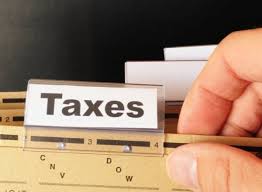
If you run a business in France, then you need to know what the most important dates in the fiscal year are. This will help ensure that all of your tax forms are filed by their deadline, otherwise you could end up with some strongly-worded reminder letters and/or a late fine. That’s why we created a guide to help you.

When you read this article, please be aware that not every deadline will apply to your business so it’s often best to consult a French accountant for specific advice.
Monthly deadlines
Some of these forms need to be filed on a monthly basis. These include:
* 10th: D.E.B. or D.E.S.: Covers buying and selling in the EU.
* 15th:
- Telepayment of the corporate tax balance: Covers companies that closed their accounts four months previously. For example, if you closed your accounts on September 30th, your form is due in January. However, on a couple of occasions, the date changes.
- 2777, 2778, and 2779 form: Covers payments of fixed income, dividends or withholding tax from the previous month.
- 2501 form: A monthly tax on wages, but not due in January.
* 31st: 2065 form: Covers businesses subject to corporation tax that closed their accounts three months previously. If you closed your accounts during October, your form would be due in January.
Another example is the C3A form, which applies to all companies that are subject to VAT. The date for filing this depends on what type of company you have, so you should ask a French accountant for the date that applies to you.
Quarterly deadlines
These forms need to be filled out in January, April, July, and October.
* 15th: 2494 and 2494 Bls: Covers businesses that paid salaries, pensions, or non-commercial incomes to non-residents of France. For example, if you hire a German marketing executive for an ad campaign.
Month-by-Month
Here we’re going to run down the most important French tax deadlines that only occur once a year.
January
* 15th: 2502 form: Declaration of tax on wages for the previous month (if the amount paid in the previous year was over €10,000) or quarter (if the annual amount paid was between €4,000 and €10,000).
* 31st: 2065 form: Request for refund of non-chargeable VAT credit in the previous year.
February
* 15th: 2062 form: Only applies to companies that entered into a loan agreement in the previous year.
* 28th:
- Apprentice Tax: Deduct expenses from your taxes.
- Continuing Education Tax: Declare and pay taxes on wages from the previous year.
April
* 24th: VAT: Deduct your VAT adjustment from last year. Only applies to partially-taxable companies.
* 30th:
- 2485 form: Your annual adjustment of apprentice tax and annual regularisation of participation in vocational training or the construction effort.
- 3310A form: Declaration and payment of tax on advertising expenses for the previous year.
May
* 15th:
- CFE: Application for a decrease of advance payment.
- 1330-CVAE: Relevant only to companies that are submitted to CVAE.
- DECLOYER: Relevant to all companies that rent their premises.
- 2746: relevant to all companies that own their premises.
June
* 15th:
- CFE-IFER: Down payment of CFE.
- CVAE: Down payment of CVAE.
- Corporate Tax: Down payment of corporate tax.
September
* 15th: CVAE: Second payment of CVAE.
December
* 15th: CFE-IFER: Second payment of the CFE or the balance.
* 18th: Corporate Tax: Down payment of corporate tax.
* 31st:
- Fees Declaration: Final chance to fix errors on the declaration of fees and commissions forms in the previous year.
- 1447-C: For people under the CFE who created, acquired, or transferred a business in the previous year.
This article was only an overview, but if you’d like a more detailed explanation head to Augefi to read their comprehensive guide.
As always with tax concerns, it’s advisable to hire an English-speaking French accountant who can navigate the French fiscal system with ease, especially when there are so many forms and dates to keep track of.







